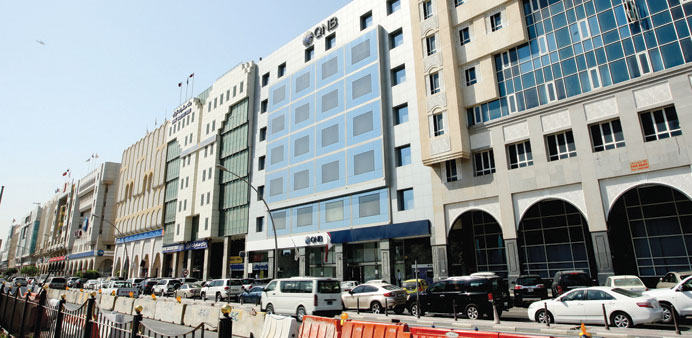The banks are seen aiming at the twin targets of deeper and broader domestic currency fixed income market and higher opportunities for long-term investments for pension and other super annuation funds. PICTURE: Nasar TK
By Santhosh V Perumal/Business Reporter
Banks in Qatar are increasingly scouting for capital, especially non-equity, to prepare themselves to support the country’s infrastructure-led growth in the future and as part of balancing the asset-liability mismatch.
The move is aimed at twin targets of deeper and broader domestic currency fixed income market and higher opportunities for long-term investments for pension and other super annuation funds, industry sources said.
Three lenders (including an Islamic bank) have already made clear their plans with regard to the bond/sukuk issues; while many more are likely to do so in the coming days, it is learnt.
The proposed bonds are part of the Euro Medium Term Note (EMTN) programme and the need for longer term funds comes in the backdrop of existing shorter duration of liabilities.
Moreover, the move is also seen in the backdrop of an expected fall in the deposits from the government and its related entities owing to weak prices of energy, which is the main money spinner for all the Gulf economies.
“The Basel III norms should actually trigger the local currency bond markets since there is enough liquidity in the markets,” Standard Chartered Bank head of macro research Marios Maratheftis told Gulf Times.
Doha Bank chairman Sheikh Fahad bin Mohamed al-Thani has said to fund long-term growth and projects in the country, the banks need to have a medium and long term stable funding base. “Since deposits are only funding source available in the country - which are generally short term - the international market presents itself as the best alternative,” he had said.
The new generation lender Al Khaliji has hiked its future bond issue size up to $2.5bn through its EMTN route, as part of shoring up its capital base to better position its balance sheet in supporting Qatar’s long-term growth.
International Islamic recently received approval from shareholders for its $2bn sukuk plan; while there have been reports that Masraf Al Rayan is also planning to come out with Islamic bonds.
“The Basel III norms and asset liability mismatch have been pushing the banks to go for bonds, while at the same time they also do not want to dilute the returns on equity,” an analyst with a global asset management house said.
Strategy& (formerly Booz & Company) had said the banking industry in Qatar will be one of the “hardest hit” by the stringent Basel III capital norms.
“Fast-growing players in Qatar, Kuwait, and the Levant will be the hardest hit, as any growth in assets requires accompanying growth in Tier 1 capital to meet new standards,” Strategy& said in a report.
But the conventional banks’ calibrated move saw that bonds will qualify as additional Tier I for capital requirements; yet not dilute earnings.
According to Moody’s, banks in the GCC (Gulf Co-operation Council) region are likely to see lower deposits from large government and government-related entities and profitability in view of the weakness in the oil market.
Another international rating agency Standard & Poor’s said the global contagion of weaker crude may be ‘underestimated’ in the banking sector of certain oil exporting countries, particularly Qatar, due to the direct credit exposure to government and related entities.
However, an International Monetary Fund working paper has found that the Basel III criteria for high-quality liquid assets are “ill-suited” to the Gulf economies, where local debt markets are underdeveloped but new capital norms should give an impetus to develop the domestic debt market in the region.

